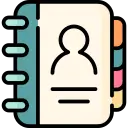IGNOU Solved Assignment
India’s No 1 Website for IGNOU Solved Assignments
If you are looking for IGNOU Solved Assignment | IGNOU Assignment so this Platform is Best for IGNOU Solved Assignment to Instant Download, gullybaba provide top-quality IGNOU solved assignments for all IGNOU courses. our Assignments are accurate, up-to-date, and aligned with the latest IGNOU Sessions.
- Every IGNOU students have to write and submit their assignments
- If any student do not submit then he/she cannot attend the upcoming Term End Exam
- IGNOU assignments contribute 30% to the total marks in each program so student can’t ignore it
- To increases performance report in grade card you must submit your Assignments. The program will be marked as incomplete without submission of the IGNOU Assignment.
Download your IGNOU Assignment instantly after purchase
Ready-to-Submit , Cost-Effective , Money-Back Guarantee , Customer Support
Download IGNOU Solved Assignments (CBCS/FYUP)
Buy IGNOU Solved Assignments
Please select your course and find the right assignments for you.
Why Money Back Guarantee?
We stand behind the quality of our assignments, which is why we offer a Money-Back Guarantee. If you don’t pass your IGNOU assignments or if your handwritten assignment isn’t accepted by IGNOU, simply share your order number and a screenshot of your marksheet, and we will process a full refund—no questions asked. We’re confident that our assignments will help you succeed, and we’re here to ensure you’re completely satisfied with your purchase.
Why Choose GullyBaba For IGNOU Solved Assignment?
There are many reason to choose Gullybaba for IGNOU Solved Assignments
- Expert Team: Our team of 100+ seasoned experts brings deep expertise in their respective fields, and a strong command of the IGNOU curriculum.
- Premium Quality: Our assignments are of Highest Quality, fully plagiarism free, and custom-written from scratch with zero grammatical mistakes.
- Trusted & Verified: Every assignment is prepared by subject matter experts and verified by Quality Assurance team to ensure 100% accuracy
- Aligned with Latest IGNOU Guidelines
- Verified and Accurate Answers
- Simple, Easy-to-Understand Language
- On-Time Delivery Guaranteed (Softcopy – Instant Download)
- High-Quality, Well-Designed Assignments
- We successfully deliver in over 30 countries
- With every sale, we contribute to plantation
- Unique Handwritten Assignments
- 100% original and unique assignments
- Value for Money (Affordable Pricing)
- We offer safe and secure payment methods
How to Download IGNOU Solved Assignment PDF?
- Visit – www.gullybaba.com
- Search for Your Course – Select your program & subject
- Choose the Latest Assignment
- Add to Cart, then Login/Register – If you’re a new user Register or already have an account, simply log in to continue)
- Checkout & Pay: (Choose your preferred payment method and complete the payment)
- Download Instantly – Get PDF download 🤩
How to Download IGNOU Assignment Question Papers?
- Visit – www.gullybaba.com
- Click ▶ IGNOU Assignment Question Papers
- Select Your Course, Session, & medium
- Then Choose Your Language & Download
How to Submit IGNOU Assignment
- Write the assignment neatly on A4-size sheets
- Mentioned your detail on first page- (Name, Enrollment Number, Course Code, Subject, and Study Center Code)
- Submit IGNOU Assignment Offline (If Required): Visit your Study Center & Submit the assignment in person and collect the receipt or acknowledgment
- Submit IGNOU Assignment Online (If Allowed): Scan your assignment as a PDF file (each subject separately) Submit via Google Forms, Email, or IGNOU Portal, as instructed by your Study Center, Keep a screenshot of the submission or confirmation email as proof
How to Check IGNOU Assignment Submission Status?
After submitting your assignment to the study center, Follow these simple steps to check your IGNOU assignment submission status online
- Visit the official website of IGNOU University at IGNOU Official Website
- On the homepage, locate the “Student Support” locate the “Student Zone” or “Results” option Select “Assignment” or “Assignment Status”
- To access the student’s account, input the necessary enrollment number and password
- Choose the particular course for which you wish to verify the assignment submission status
- Check the submission date, status, and remarks
Dear IGNOU Students
- Best Quality Assignments help in boosting your final percentage as they contribute 30% to your overall marks.
- Regular study and timely submission of IGNOU Assignment can make a huge difference in your final grades.
- Don’t take assignments lightly—they can be the game-changer in improving your final percentage.
- IGNOU success is all about discipline—regular study and well-prepared assignments lead to great results.
- Success in IGNOU = Good Assignments + Smart Study! Prepare well, submit on time




